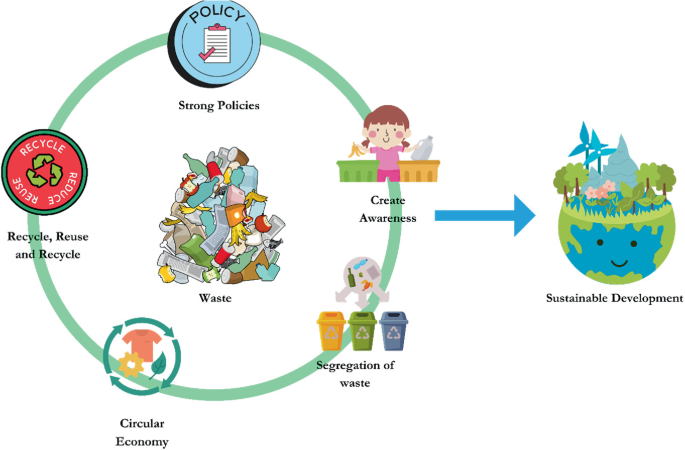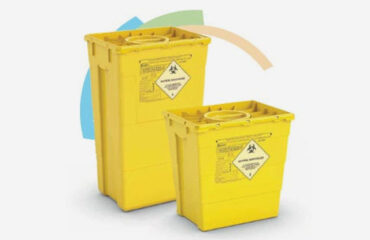Excitement About Reclaim Waste
Excitement About Reclaim Waste
Blog Article
The 25-Second Trick For Reclaim Waste
Table of ContentsSome Known Details About Reclaim Waste The Ultimate Guide To Reclaim Waste7 Easy Facts About Reclaim Waste ShownThe Definitive Guide to Reclaim WasteFascination About Reclaim Waste
Domestic sewage waste refers to the waste and items from a household septic storage tank. The correct administration and disposal of residential sewage waste need fluid waste to be transferred to a sewer treatment plant where the correct methods and tools are applied to purify and dispose of waste.
Industrial waste often includes possible risks, such as combustible products or a mixture of liquid and strong waste items, and requires an advanced and detailed disposal process. The disposal of business waste typically involves the filtering of waste prior to transportation to make sure risk-free and correct disposal. Hazardous waste is created from byproducts and overflow of industrial procedures and manufacturing.
This sort of waste can not use the exact same sewer management transportation or processes as septic or business fluids. The industrial waste administration procedure calls for the inspection and testing of liquid waste prior to it goes through the disposal process (liquid waste disposal melbourne). Overflow waste is the liquid waste that comes from runoff and excess stormwater in very populated areas or cities
Runoff waste can trigger contamination and flooding if not taken care of properly. Find out more regarding drain cleaning and waste monitoring. Ensuring correct waste administration can protect against calamities and decrease environmental harm. Both individuals in household setups and specialists in industrial or production industries can gain from comprehending the procedures and guidelines of liquid waste management.
The Facts About Reclaim Waste Revealed
Call PROS Solutions today to find out about our waste management and disposal solutions and the appropriate means to care for the fluid waste you produce.
(https://giphy.com/channel/reclaimwaste1)Do you understand what occurs to your water when you disengage, flush the toilet or drain the cleaning maker? No? Well, it deserves knowing. This so-called 'wastewater' is not only an essential source but, after therapy, will certainly be released to our land, waterways or the ocean. Utilized water from toilets, showers, baths, kitchen sinks, washings and industrial processes is called wastewater.

water made use of to cool equipment or clean plant and tools). Stormwater, a type of wastewater, is drainage that flows from farming and urban areas such as roof coverings, parks, yards, roads, paths and rain gutters into stormwater drains, after rainfall. Stormwater streams untreated straight to neighborhood creeks or rivers, at some point getting to the sea.
The Best Guide To Reclaim Waste
In Queensland, many wastewater is treated at sewer therapy plants. Wastewater is delivered from residential or commercial sites via a system of sewers and pump stations, known as sewage reticulation, to a sewer treatment plant.
The Division of Natural Resources suggests city governments about managing, operating and maintaining sewerage systems and therapy plants. In unsewered locations, local federal governments may require owners to set up private or family sewage treatment systems to deal with domestic wastewater from commodes, kitchen areas, restrooms and laundries. The Department of Natural Resources authorises making use of house systems when they are confirmed to be efficient.
The majority of stormwater obtains no treatment. In some new neighborhoods, therapy of some stormwater to remove trash, sand and crushed rock has actually begun utilizing gross contaminant traps. Wastewater treatment occurs in 4 phases: Removes solid issue. Bigger solids, such as plastics and other items wrongly released to sewers, are removed when wastewater is travelled through screens.
Wastewater after that streams right into large storage tanks where solids work out and are removed as original site sludge. Grease and residue are skimmed from the surface area. Makes use of little living organisms knows as micro-organisms to damage down and eliminate staying liquified wastes and fine bits. Micro-organisms and wastes are included in the sludge. Gets rid of nitrogen and phosphorus nutrients that might cause algal blooms in our rivers and threaten aquatic life.
Some Known Details About Reclaim Waste
Nutrient removal is not readily available at all sewage therapy plants due to the fact that it calls for pricey specialist equipment. Clear fluid effluent created after therapy might still contain disease-causing micro-organisms - liquid waste removal melbourne.

The majority of wastewater streams into the sewerage system. Under the Act, local federal governments carry out approvals and licences for eco pertinent tasks (ERAs) entailing wastewater launches that could have a regional effect.
Reclaim Waste Things To Know Before You Buy
Monitoring provides factual information about water top quality and can verify that permit problems are being fulfilled. The information acquired through monitoring supplies the basis for making water top quality choices.
Report this page